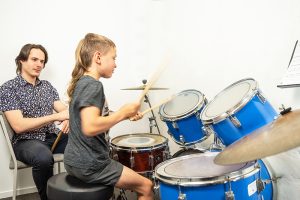
Due to the rich cultural calendar, many music production courses exist in Hong Kong, both for hobbyists and future music producers. Therefore, these music production course hong kong offer comprehensive training where one can learn from low-level skills to the highest level of audio engineering.
The Emergence of Music Production Classes
As technology has advanced, people have moved on to new forms of making music, and various institutions have emerged to educate. It is possible to find courses in music production for beginners to advanced levels in Hong Kong, ranging from organisational lessons in music composition, recording, and mastering.
Course Content and Structure
Music production courses typically cover:
- Introduction to Music Production: Elements of instrumental tracks, high-pitched sounds and audio recording, and music tracks and their equipment and instruments.
- Digital Audio Workstations (DAWs): There is a wide variety of core programmes, such as Ableton Live and FLStudios, among others, and training is normally done through projects.
- Sound Design and Synthesis: Integration of music, usage of synthesisers, usage of samplers.
- Recording Techniques: voice production and instrumental teaching skills, and ways of vocally and instrumentally recording a voice and instruments, a microphone, and other peripheral equipment.
- Mixing and Mastering: Methods of adding/subtracting sound volume from tracks, distributing sound volume among tracks, and use of the EQ, compressor, and reverb during music track mixing.
- Music Theory and Composition: With some level of knowledge of the theory as well as components, harmony would be crucial in the selection of the components, which, when combined, create a single piece of music.
- Live Sound and Performance: describing the concepts of live sound engineering and performance setup and their kinds.

Benefits of Enrolling in a Music Production Course
- Structured Learning: Thus, there is hierarchization in courses; it is not presenting one point, then another, and only if the fundamentals are not set on the shelf again, there is systematisation.
- Hands-on Experience: These essays make it possible for the students to implement what is learned in real-life situations.
- Access to Professional Equipment: All of the courses permit the use of great studios and equipment in most of the work.
- Networking Opportunities: The courses are structured in such a manner that one can interact with fellow musicians as well as people in the industry.
- Expert Instruction: Fully trained, mature, knowledgeable, and experienced workers are knowledgeable and capable of training.
Choosing the Right Course
There is nothing as important as ensuring that you have taken your time to find the right course in music production. When you are choosing a course in Hong Kong, some of the things that you should consider are the contents of the course, the number of months or years that the course will last, the amount of money that you will be charged, and the qualifications of the instructors.
Conclusion
The educational programmes presented at universities and institutions focus on music production in Hong Kong. These courses prepare the students to conquer the world in the highly complex area of music production.






